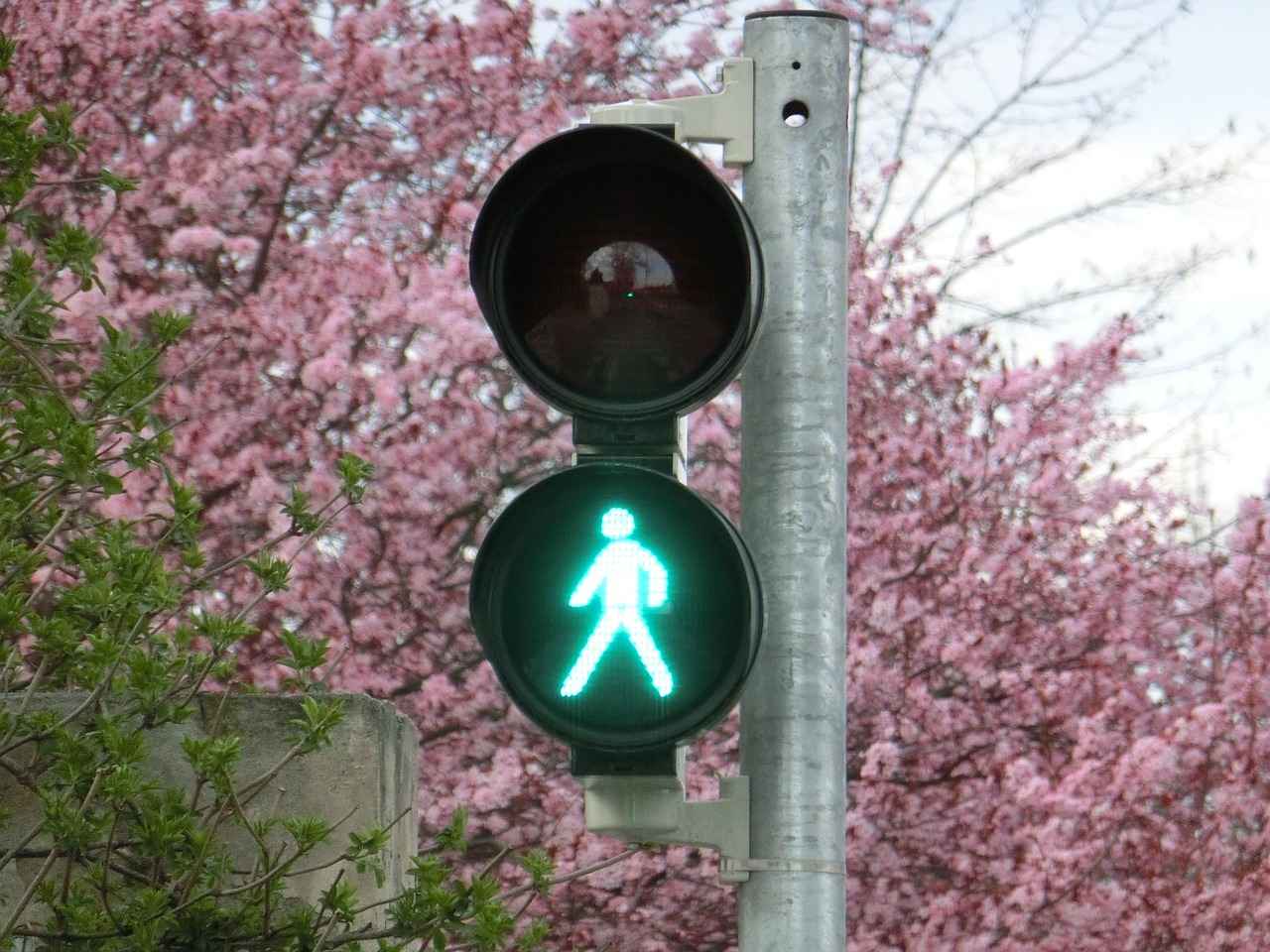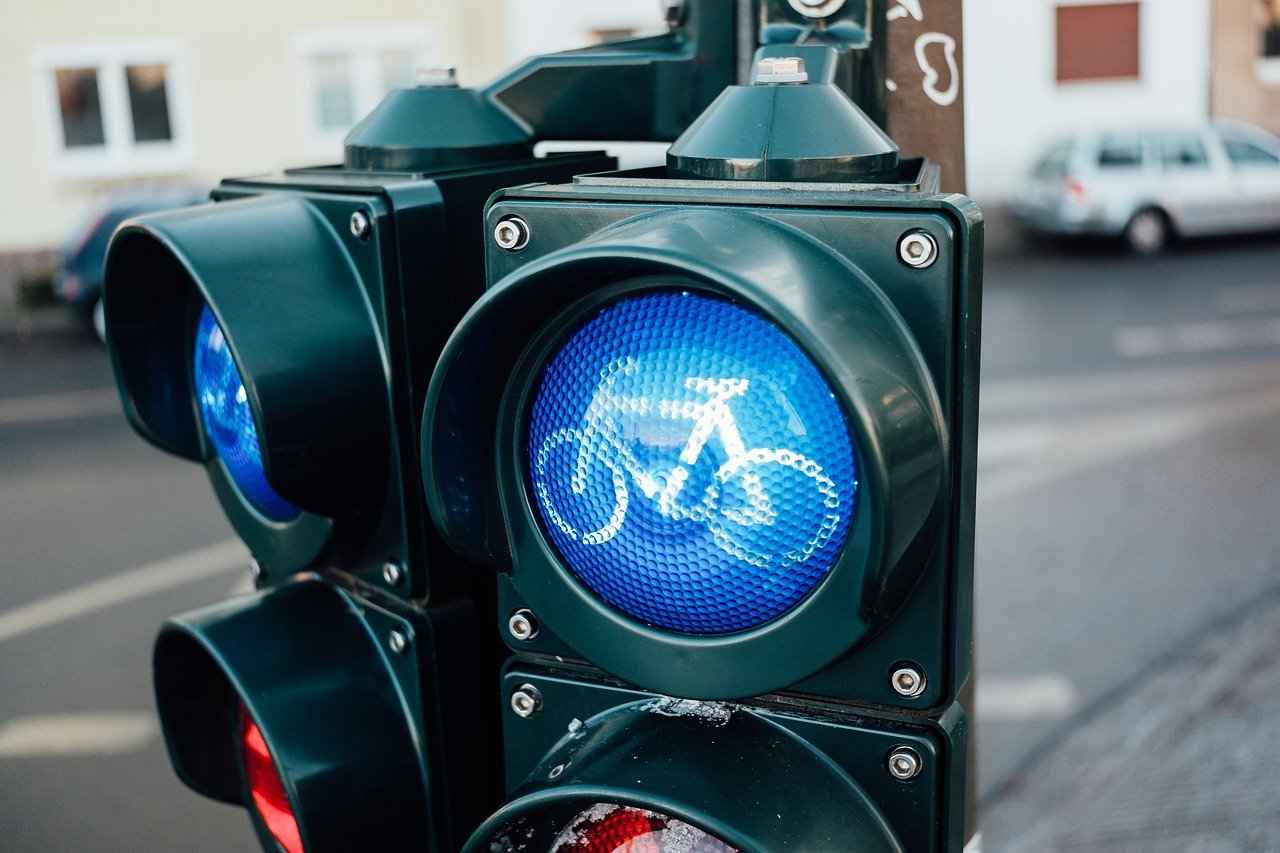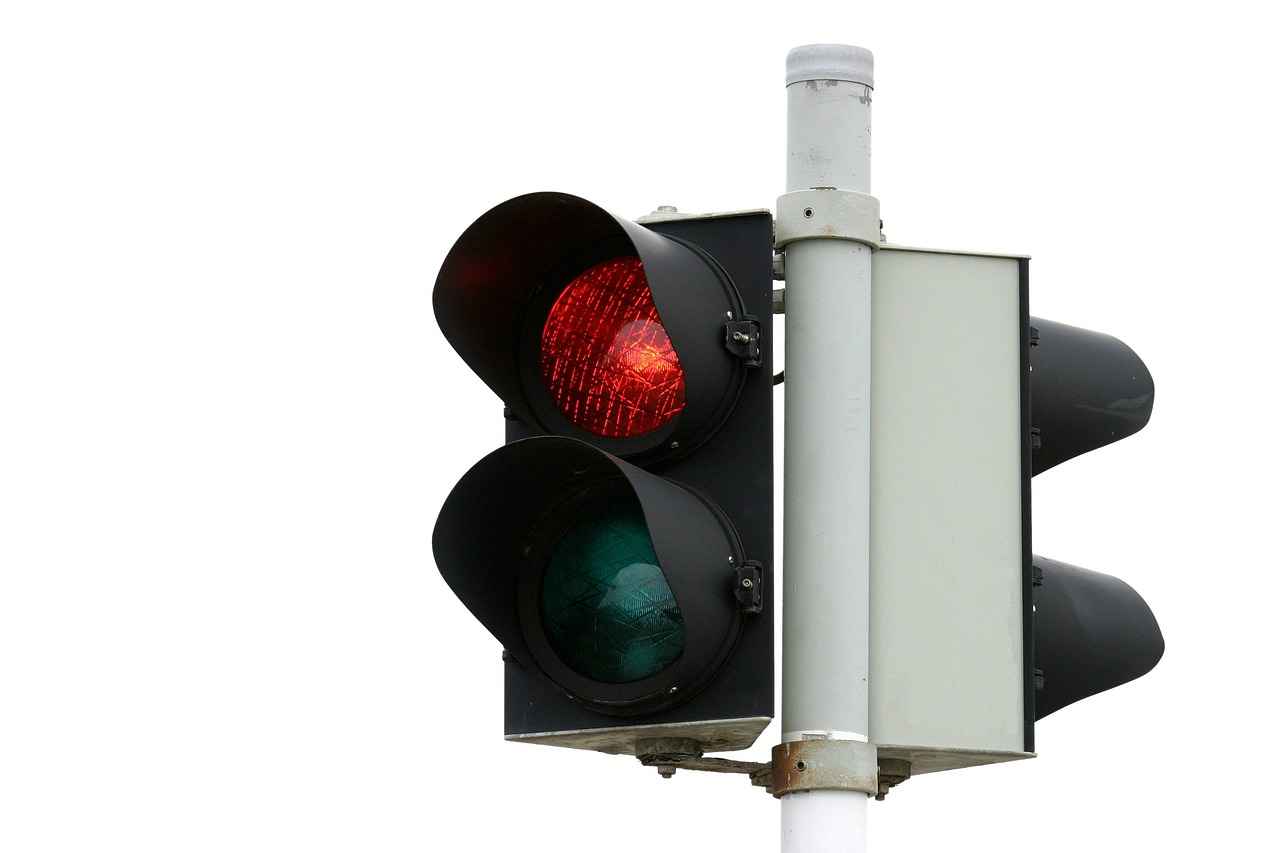When you receive a traffic ticket, understanding the timeline and processes for payment is crucial. This article delves into the various aspects of paying traffic tickets, including important deadlines, potential consequences for late payments, and options available for those who wish to contest their tickets.
Typically, you have 15 to 30 days from the date of issuance to pay your traffic ticket. However, this timeframe can differ significantly based on your jurisdiction. It is essential to check the specific regulations in your area to avoid any misunderstandings.
If you fail to pay your ticket on time, you may face a range of consequences. These can include:
- Increased fines that can accumulate quickly
- Potential issuance of a warrant for your arrest
- Suspension of your driver’s license, depending on local laws
Ignoring the deadline can turn a simple ticket into a much more complex legal issue.
If you believe that your ticket was issued in error, you have the right to contest it. This process generally involves a court appearance, which can extend your payment timeline. Be prepared to present evidence, such as:
- Photographs that support your case
- Witness statements that corroborate your version of events
Gathering all relevant evidence is essential for strengthening your case. Additionally, familiarize yourself with local laws regarding your specific offense to better argue your position during the hearing.
During the hearing, both you and the officer will present your cases. The judge will review the evidence and make a ruling based on the facts presented. Understanding the courtroom process can help alleviate some anxiety associated with this experience.
Many jurisdictions allow individuals to request a payment extension under specific circumstances. It is vital to communicate with the court or relevant authority promptly to explore this option, especially if you are facing financial difficulties.
Ignoring a traffic ticket can escalate the situation significantly. Possible consequences include:
- Additional fines and penalties
- Collection actions that can affect your credit score
- Criminal charges in severe cases
Unpaid tickets can lead to points being added to your driving record, which can result in higher insurance premiums and potential license suspension. Keeping your driving record clean is essential for maintaining affordable insurance rates.
If you are experiencing financial hardship, many courts offer options such as payment plans or community service to help manage the cost of fines. Reaching out to your local court can provide you with information on available resources.
In certain situations, you may have alternatives to outright payment, such as attending traffic school. Completing traffic school can not only reduce your fine but may also prevent points from being added to your driving record.
Eligibility for traffic school often depends on the type of violation and your driving history. Be sure to check local regulations to determine if you qualify for this option.
Knowing the various payment methods available can streamline the process. Options typically include:
- Online payments for quick and secure transactions
- Mailing your payment to the designated address
- In-person transactions at designated locations
Most jurisdictions offer online payment systems that allow you to pay your ticket quickly and securely from the comfort of your home. This method is often the most convenient and efficient.
Paying by mail remains a viable option, but it requires careful attention to detail. Ensure that you send your payment to the correct address and allow sufficient time for processing to avoid missing the deadline.

What is the Typical Deadline for Paying a Ticket?
When it comes to managing traffic tickets, understanding the typical deadlines for payment is crucial. This knowledge not only helps you avoid additional penalties but also ensures that you maintain a clean driving record. In general, you will find that most jurisdictions allow a payment window of 15 to 30 days from the date the ticket was issued. However, this timeframe can vary significantly based on local laws and regulations.
Many factors influence the payment deadline for traffic tickets. For instance, some states may offer extended deadlines for certain types of violations, while others may impose stricter rules. It’s essential to check the specific guidelines for your area to understand the exact timeframe applicable to your situation.
Being aware of the payment deadline is vital for several reasons:
- Avoiding Increased Fines: Late payments often incur additional penalties, which can significantly increase the overall cost of the ticket.
- Preventing Legal Consequences: Failing to pay on time could lead to further legal actions, including warrants for your arrest or a suspended driver’s license.
- Maintaining a Clean Record: Timely payment helps in keeping your driving record clear, which is essential for insurance purposes and future driving privileges.
Several factors can impact the payment deadline for your traffic ticket:
- Type of Violation: Different violations may have different deadlines. For example, minor infractions might allow for a longer payment period than more serious offenses.
- Jurisdiction: Each state or local jurisdiction may have its own rules regarding ticket payments, so it’s crucial to familiarize yourself with local laws.
- Payment Method: Some jurisdictions may offer extended deadlines if you choose specific payment methods, such as online payments or payment plans.
If you find yourself in a situation where you have missed the payment deadline, it’s important to take immediate action:
- Contact the Court: Reach out to the court or relevant authority as soon as possible to discuss your options. Many courts are willing to work with individuals who proactively communicate.
- Consider Contesting the Ticket: If you believe there are grounds to contest the ticket, you may be able to extend your payment deadline through a court appearance.
- Explore Payment Plans: Some jurisdictions offer payment plans for those unable to pay the full amount upfront, which can provide some financial relief.
In summary, understanding the typical deadlines for paying traffic tickets is essential for avoiding unnecessary complications. By being proactive and informed about your obligations, you can navigate the process with confidence and protect your driving privileges.

What Happens if You Miss the Payment Deadline?
When it comes to traffic tickets, understanding the importance of timely payment is crucial. Failing to pay your ticket on time can lead to a cascade of serious consequences that can complicate your life. In this section, we will delve into the repercussions of missing the payment deadline and the long-term implications it may have on your driving record and financial situation.
If you miss the payment deadline for your traffic ticket, the repercussions can be severe. Initially, you may incur increased fines. Many jurisdictions impose additional fees for late payments, which can significantly raise the total amount you owe. This can create a financial burden that may be difficult to manage.
Moreover, if the ticket remains unpaid for an extended period, the court may issue a warrant for your arrest. This is particularly true for serious violations or repeat offenders. A warrant can lead to a police stop, resulting in further legal complications and potential incarceration.
In addition to fines and warrants, another serious consequence of failing to pay your ticket on time is the risk of having your driver’s license suspended. Depending on local laws, a suspended license can severely impact your ability to commute to work, attend school, or manage daily errands. This can lead to a cycle of missed opportunities and increased financial strain.
Furthermore, unpaid tickets can lead to negative marks on your driving record. Accumulating points for unpaid violations can result in higher insurance premiums, making it more expensive to maintain your vehicle. Over time, this can affect your overall financial health.
It is also important to note that ignoring a ticket can lead to additional legal actions, such as collections. If the fines are not paid, the court may escalate the situation by sending your debt to a collection agency, which can further damage your credit score.
In summary, the consequences of missing the payment deadline for a traffic ticket can be extensive, ranging from increased fines to arrest warrants and license suspensions. To avoid these issues, it is essential to be proactive about your traffic citations. If you find yourself unable to pay your ticket on time, consider reaching out to the relevant authorities to discuss payment plans or extensions.
- Contact the Court: Reach out to the court as soon as possible to discuss your situation. They may offer options for payment plans or extensions.
- Consider Contesting the Ticket: If you believe the ticket was unjustly issued, you may have the option to contest it, which can sometimes extend your payment deadline.
- Explore Financial Assistance: Some jurisdictions provide resources or programs to assist individuals facing financial difficulties in paying their fines.
By understanding the implications of missing a ticket payment and taking proactive steps, you can mitigate the negative consequences and maintain your driving privileges.
Are There Options for Contesting a Ticket?
If you have received a traffic ticket and believe it was issued in error, you may be relieved to know that there are options available to contest it. This process can be a bit complex, but understanding your rights and the steps involved can help you navigate it more effectively.
Contesting a ticket typically means you are challenging the validity of the citation. This can involve a court appearance where you will present your case. The process may vary based on your jurisdiction, but generally, it requires you to file a formal request to contest the ticket.
Preparation is key when contesting a ticket. Here are some steps to consider:
- Gather Evidence: Collect any relevant evidence that supports your claim. This may include photographs, dashcam footage, or witness statements.
- Understand Local Laws: Familiarize yourself with the traffic laws related to your citation. Knowing the specifics can strengthen your argument.
- Consult Legal Advice: If you feel overwhelmed, consider seeking legal counsel. An attorney experienced in traffic law can provide valuable insights and guidance.
During the hearing, both you and the officer who issued the ticket will present your cases. Here’s what typically happens:
- Opening Statements: You will have the opportunity to explain why you believe the ticket should be dismissed.
- Presentation of Evidence: Both parties can present evidence. This is your chance to showcase your gathered materials.
- Judge’s Decision: After reviewing the evidence, the judge will decide whether to uphold or dismiss the ticket.
Yes, contesting a ticket can extend the timeline for payment. When you contest a ticket, the court may postpone the payment deadline until after the hearing. This can provide some financial relief, allowing you to delay payment while your case is being resolved.
While contesting a ticket can be beneficial, there are risks involved:
- Potential for Increased Fines: If the judge rules against you, you may face higher fines or additional penalties.
- Time and Effort: Contesting a ticket requires time and effort, including research and possibly court appearances.
If contesting seems daunting, consider alternatives such as:
- Traffic School: In many jurisdictions, attending traffic school can reduce fines and prevent points from being added to your driving record.
- Payment Plans: If financial burden is a concern, inquire about payment plans that may be available to help manage your ticket costs.
In conclusion, if you believe your ticket was issued in error, contesting it is a viable option. While it can be a complex process, being well-prepared and informed can significantly improve your chances of a favorable outcome.
How to Prepare for Contesting a Ticket
Contesting a traffic ticket can be a daunting task, but being well-prepared can significantly enhance your chances of success. The process requires a strategic approach, focusing on gathering compelling evidence and understanding the relevant laws. Here’s how to effectively prepare for your case.
- Collect Evidence: One of the most critical steps in contesting a ticket is to gather evidence that supports your claim. This may include:
- Photographs: Take clear images of the location where the ticket was issued. Ensure to capture any signs, road markings, or obstructions that might support your argument.
- Witness Statements: If there were any witnesses present during the incident, ask them to provide a written statement detailing what they observed. Their testimony can be invaluable in corroborating your version of events.
- Video Evidence: If possible, obtain video footage from nearby surveillance cameras or dash cams that may have recorded the incident.
- Understand Local Laws: Familiarizing yourself with local traffic laws related to your specific offense is crucial. This knowledge can help you identify any discrepancies in how the ticket was issued. You can:
- Research the specific traffic regulations in your jurisdiction. This can often be found on the local government or law enforcement websites.
- Consult legal resources or traffic law experts who can provide insights into how similar cases have been handled.
- Review the Ticket: Carefully examine the ticket for any errors or inaccuracies. Mistakes in the ticket details, such as the date, time, or vehicle information, can be grounds for dismissal.
- Prepare Your Argument: Develop a clear and concise argument for why the ticket should be dismissed. Outline the key points you want to present, ensuring that they are supported by the evidence you have gathered.
- Practice for the Hearing: If you are required to appear in court, practice your presentation. Rehearse how you will present your evidence and respond to potential questions from the judge or opposing counsel.
By taking these steps, you can build a strong case that may lead to the dismissal of your ticket. Remember, being organized and informed is key to navigating the legal process effectively. Always remain respectful in court, and be prepared to listen to the judge’s feedback, as this will demonstrate your seriousness about contesting the ticket.
What to Expect During a Court Hearing
When you find yourself contesting a traffic ticket, understanding the court hearing process is crucial. This stage can significantly influence the outcome of your case, and being well-prepared can make a substantial difference.
What Happens During the Hearing?
During the hearing, both you and the officer will present your cases. The judge will listen to both sides carefully, considering the evidence and arguments put forth. It’s important to remember that the burden of proof often lies with you, the defendant, to demonstrate why the ticket should be dismissed.
Preparing Your Case
- Gather Evidence: Collect any relevant evidence, such as photographs, diagrams, or witness statements that support your claims. This documentation can be pivotal in persuading the judge.
- Understand the Law: Familiarize yourself with the specific laws related to your ticket. Knowing the legal framework can help you build a stronger argument.
- Practice Your Presentation: Rehearse what you intend to say. Being articulate and confident can positively influence the judge’s perception of your case.
What to Expect from the Officer
The officer who issued the ticket will also present their side of the story. They may provide their notes, photographs, or other evidence to support the ticket. Pay attention to their testimony and be prepared to address any discrepancies or misunderstandings that arise.
The Judge’s Role
The judge acts as an impartial arbiter, ensuring that both sides have a fair opportunity to present their arguments. After hearing both sides, the judge will make a decision based on the evidence presented. This decision can either uphold the ticket or dismiss it, depending on the strength of the arguments and evidence.
Possible Outcomes
- Ticket Upheld: If the judge finds the evidence against you compelling, the ticket will be upheld, and you may be required to pay the fine.
- Ticket Dismissed: If your evidence is strong enough to raise reasonable doubt, the judge may dismiss the ticket, relieving you of any penalties.
What Happens After the Hearing?
Regardless of the outcome, you will receive a written notice of the judge’s decision. If the ticket is upheld, you will need to follow through with payment or any other penalties imposed. If dismissed, ensure that you keep a copy of the judgment for your records.
Final Thoughts
Attending a court hearing can be daunting, but being well-prepared and understanding the process can help you navigate it more effectively. Remember to remain calm and respectful throughout the proceedings, as this can positively influence the judge’s perception of your case.
Can You Request an Extension for Payment?
When you receive a traffic ticket, understanding your options for payment is crucial. One of the most important questions that often arises is, “Can you request an extension for payment?” Many jurisdictions recognize that circumstances can vary for each individual, and they may allow for payment extensions under certain conditions. This article aims to provide comprehensive insights into how to navigate this process effectively.
Payment extensions can be a lifeline for those facing financial difficulties or unexpected circumstances that make it challenging to pay a ticket by the initial deadline. Typically, jurisdictions have specific guidelines regarding who can qualify for an extension, so it’s essential to familiarize yourself with local laws.
To initiate the process of requesting an extension, you should communicate directly with the court or relevant authority that issued the ticket. Here are some steps to guide you:
- Contact the Court: Reach out to the court’s clerk or the designated department handling traffic violations.
- Provide Documentation: Be prepared to explain your situation and provide any necessary documentation that supports your request.
- Follow Up: After submitting your request, ensure you follow up to confirm that it has been received and is being processed.
Several factors may influence whether your request for an extension is granted:
- Financial Hardship: Courts are often more lenient if you can demonstrate genuine financial difficulties.
- Previous Compliance: A history of timely payments may work in your favor.
- Type of Violation: Minor infractions may be treated more leniently than serious offenses.
If you fail to pay your ticket by the deadline and do not request an extension, you may face various consequences, including:
- Increased Fines: Late payments often incur additional fees.
- Suspension of License: In some cases, failure to pay can lead to your driver’s license being suspended.
- Legal Action: Ignoring the ticket can escalate to court appearances or collection actions.
If your request for an extension is denied, it’s crucial to act quickly. Consider the following options:
- Payment Plans: Many courts offer payment plans that allow you to pay the fine in installments.
- Community Service: Some jurisdictions may allow you to perform community service in lieu of payment.
- Seek Legal Advice: If you’re unsure of your rights or options, consulting with a legal professional can provide clarity.
Understanding the process for requesting a payment extension can significantly alleviate the stress associated with traffic tickets. Always remember to communicate openly with the court and provide any necessary documentation to support your case. By taking proactive steps, you can navigate this challenging situation more effectively.

What Are the Consequences of Ignoring a Ticket?
Ignoring a traffic ticket is a serious matter that can lead to a cascade of negative consequences. It is crucial to understand that the repercussions of neglecting a ticket extend far beyond just the initial fine. In this section, we will explore the various outcomes that can arise when a ticket is ignored, emphasizing the importance of addressing these legal obligations promptly.
When you choose to ignore a traffic ticket, you may face several escalating consequences, including:
- Increased Fines: The initial fine for the ticket can increase significantly if it remains unpaid. Many jurisdictions impose late fees or penalties that accumulate over time, making the cost of ignoring the ticket much higher.
- Collection Actions: Failure to pay your ticket can lead to the involvement of collection agencies. This not only adds to your financial burden but can also negatively impact your credit score.
- Warrants for Arrest: In severe cases, especially for repeated offenses or significant violations, ignoring a ticket can result in a warrant being issued for your arrest. This can lead to serious legal troubles and additional charges.
- License Suspension: Unpaid tickets may result in the suspension of your driver’s license, making it illegal for you to drive until the fines are settled. This can create further complications, including additional fines for driving with a suspended license.
Your driving record is a crucial aspect of your overall driving privileges. Unpaid tickets can lead to:
- Accumulation of Points: Many states assign points for traffic violations, and unpaid tickets can result in points being added to your record. Accumulating too many points can lead to further penalties, including license suspension.
- Increased Insurance Premiums: Insurance companies often review your driving record when determining your premiums. Points from unpaid tickets can lead to higher rates, costing you significantly more in the long run.
If financial difficulties prevent you from paying a ticket, it’s essential to take action rather than ignoring it. Many courts offer options such as:
- Payment Plans: You may be able to arrange a payment plan that allows you to pay the fine in installments, making it more manageable.
- Community Service: Some jurisdictions may allow you to perform community service in lieu of paying fines, providing a way to fulfill your obligation without financial strain.
In certain situations, you may have alternatives to outright payment. Options include:
- Traffic School: Completing a state-approved traffic school can sometimes reduce your fines and prevent points from being added to your record.
- Contesting the Ticket: If you believe the ticket was issued in error, you have the right to contest it in court. This may require gathering evidence and presenting your case.
In summary, ignoring a traffic ticket is not a viable option. The consequences can escalate quickly, leading to increased financial burdens and legal issues. It is always advisable to address tickets promptly, whether through payment, contesting, or exploring alternative options. Taking proactive steps can help mitigate the impact on your driving record and financial situation.
How Does Ignoring a Ticket Affect Your Driving Record?
Ignoring a traffic ticket can have significant repercussions that extend far beyond just the initial fine. Many drivers underestimate the long-term effects that unpaid tickets can have on their driving record and overall driving privileges. Understanding these consequences is crucial for every driver to maintain a clean record and avoid future complications.
When you receive a traffic ticket, it is essential to address it promptly. If you choose to ignore it, the ticket can lead to points being added to your driving record. Accumulating points can result in various penalties, including increased insurance premiums and even the possibility of having your driver’s license suspended.
Each state has its own point system, and the accumulation of points can lead to severe penalties. For instance:
- Increased Insurance Premiums: Insurance companies often view points as an indicator of risky driving behavior. As a result, drivers with points on their record may face significantly higher premiums.
- License Suspension: Most states have specific thresholds for points that, when exceeded, can trigger a suspension of driving privileges. This can severely impact your daily life, making it difficult to commute to work or fulfill other responsibilities.
- Mandatory Defensive Driving Courses: In some cases, drivers may be required to attend defensive driving courses to reduce points, which can be an added expense and time commitment.
Yes, neglecting to pay a traffic ticket can escalate into more severe legal troubles. If a ticket remains unpaid, it may lead to:
- Warrants for Arrest: In certain jurisdictions, persistent non-payment can result in a warrant being issued for your arrest, leading to further legal complications.
- Collections Actions: Unpaid tickets may be sent to collections, affecting your credit score and leading to financial difficulties.
If you find yourself in a situation with unpaid tickets, there are steps you can take to mitigate the impact:
- Pay the Ticket Promptly: The best course of action is always to pay the ticket as soon as possible to avoid accumulating points.
- Request a Hearing: If you believe the ticket was issued in error, you can request a hearing to contest it. This may delay the payment timeline and provide an opportunity to clear your name.
- Seek a Payment Plan: If you are experiencing financial hardship, many jurisdictions offer payment plans that allow you to pay the fine in installments.
For those struggling to pay a ticket, it’s essential to communicate with the court. Many courts are understanding of financial difficulties and may offer alternatives such as:
- Community Service: Some jurisdictions allow you to perform community service in lieu of paying a fine.
- Reduced Fines: In certain cases, courts may reduce the fine amount based on your financial situation.
In summary, ignoring a traffic ticket can have serious implications for your driving record, insurance costs, and overall legal standing. By understanding the potential consequences and taking proactive steps, you can protect your driving privileges and avoid future complications.
What Should You Do if You Can’t Afford to Pay?
If you find yourself unable to pay a traffic ticket due to financial hardships, it is important to know that many courts provide flexible options to assist you. These options can help ease the burden of fines while ensuring compliance with the law.
Many jurisdictions understand that unexpected financial difficulties can arise. As a result, they often offer payment plans that allow you to pay your fines in installments rather than in a lump sum. This approach can make it significantly easier to manage your finances while still addressing your legal obligations.
- Eligibility: To qualify for a payment plan, you may need to demonstrate your financial situation. This could involve submitting documentation such as pay stubs, bank statements, or tax returns.
- Application Process: Typically, you will need to fill out a form or make a request through the court’s website or clerk’s office to initiate a payment plan.
- Fees: Be aware that some courts may charge a small administrative fee for setting up a payment plan.
If paying fines is not feasible, many courts also offer community service as an alternative to monetary payment. This option allows you to fulfill your obligation by contributing your time and effort to community projects.
- How It Works: Upon approval, you will be assigned a certain number of hours to complete. This can often include working with local charities, cleaning public spaces, or assisting in community events.
- Verification: After completing your service, you will typically need to provide proof to the court to ensure that your obligation has been met.
It is crucial to proactively communicate with the court if you are experiencing financial difficulties. Ignoring the situation can lead to more severe consequences, such as increased fines or even warrants for your arrest. Here are some steps to follow:
- Contact the Court: Reach out to the court as soon as possible. Explain your situation clearly and inquire about available options.
- Document Everything: Keep records of all communications with the court, including dates, names, and the content of conversations.
- Follow Up: After your initial contact, make sure to follow up to ensure your request is being processed.
If you are unsure about your options or feel overwhelmed, consider seeking legal advice. Many legal aid organizations offer free or low-cost services to individuals facing financial difficulties. An attorney can help you understand your rights and options, ensuring that you make informed decisions.
In conclusion, if you find yourself unable to pay a traffic ticket, remember that you are not alone. Courts are often willing to work with individuals facing financial hardships through payment plans or community service options. Taking proactive steps and communicating with the court can help you navigate this challenging situation effectively.

Are There Alternatives to Paying a Ticket?
When faced with a traffic ticket, many individuals may feel overwhelmed by the financial implications. However, it’s important to understand that there are alternatives to outright payment that can ease the burden. This section will explore various options available to individuals who wish to mitigate the consequences of a traffic citation.
- Traffic School
- Community Service
- Payment Plans
- Contesting the Ticket
One of the most common alternatives to paying a traffic ticket is attending traffic school. This option is often available for minor violations and can serve multiple purposes:
- It may reduce the fine associated with your ticket.
- Completing traffic school can prevent points from being added to your driving record.
- Successfully finishing the course may lead to lower insurance premiums.
Before enrolling, check with your local court to see if you qualify for this option, as eligibility can depend on the nature of the violation and your driving history.
In some jurisdictions, individuals may have the option to perform community service in lieu of paying a fine. This can be a beneficial alternative for those facing financial hardship. Community service not only helps the community but also allows you to fulfill court obligations without incurring financial strain. To pursue this option, you will need to:
- Contact the court to express your interest in community service.
- Complete any required paperwork and follow the court’s guidelines.
If the fines associated with your ticket are overwhelming, many courts offer payment plans. This option allows you to pay the fine in installments rather than a lump sum. Here’s how to go about it:
- Reach out to the court as soon as possible to discuss your financial situation.
- Ask about available payment plan options and any associated fees.
Setting up a payment plan can help you manage your finances more effectively while ensuring that you meet your legal obligations.
If you believe that you were wrongfully issued a ticket, you have the right to contest it. This process can be lengthy and may require you to appear in court. To successfully contest a ticket:
- Gather evidence, such as photographs or witness statements, to support your case.
- Prepare for a court hearing where both you and the officer will present your arguments.
Contesting a ticket can extend the timeline for payment, giving you more time to address the situation while potentially leading to a dismissal of the ticket.
In addition to the options listed above, it’s worth checking if your jurisdiction has any special programs or initiatives designed to assist individuals in managing their traffic fines. Some courts may offer:
- Financial hardship programs that reduce fines based on income.
- Educational programs that, when completed, may lead to a reduction in penalties.
Always communicate openly with the court about your situation. They may provide solutions that you were unaware of, allowing you to navigate your ticket without undue financial stress.
How Traffic School Can Help
When faced with a traffic ticket, many drivers find themselves overwhelmed by the potential consequences. One effective way to mitigate these repercussions is by attending traffic school. is a crucial topic for anyone looking to understand the benefits of this option.
Completing a state-approved traffic school can be immensely beneficial for several reasons. First and foremost, it can significantly reduce your fine. Many jurisdictions offer a discount on ticket fines for individuals who opt for traffic school instead of paying the ticket outright. This can lead to substantial savings.
Yes, attending traffic school may also prevent points from being added to your driving record. Points can accumulate quickly, and having too many can lead to higher insurance premiums or even a suspended license. By successfully completing a traffic school course, drivers can often have the ticket dismissed, thereby keeping their driving record clean.
Insurance companies typically review your driving record when determining your premium rates. A clean record can lead to lower insurance costs. By attending traffic school and avoiding points, you may be able to maintain your current insurance rates or even qualify for discounts. This can help you save money in the long run.
Eligibility for traffic school varies by state and the nature of the violation. Generally, minor infractions qualify for traffic school, but serious offenses may not. It’s essential to check local regulations to determine if you are eligible. Some states may limit the frequency with which you can attend traffic school, so be aware of these stipulations.
- Accreditation: Ensure the school is state-approved.
- Course Format: Consider whether you prefer online classes or in-person instruction.
- Reviews: Look for testimonials or ratings from previous students.
Traffic school courses typically cover a variety of topics related to safe driving practices, traffic laws, and the consequences of unsafe behavior. The format may include lectures, interactive discussions, and quizzes. Completing the course often culminates in a final exam to assess your understanding of the material.
Traffic school courses can vary in length, ranging from a few hours to a full day, depending on the state and the specific program. Online courses often provide flexibility, allowing you to complete the coursework at your own pace. However, it’s important to finish the course within the designated timeframe set by the court.
Once you complete the course, the traffic school will notify the court, and you will typically receive a certificate of completion. Make sure to keep a copy for your records. The court will then process this information, which should result in the dismissal of your ticket and the avoidance of points on your record.
In summary, attending traffic school can be a wise decision for those looking to manage the aftermath of a traffic ticket. By reducing fines, preventing points from being added to your record, and potentially lowering your insurance rates, traffic school offers a valuable opportunity for responsible drivers.
What Are the Eligibility Requirements for Traffic School?
Understanding the eligibility requirements for traffic school is crucial for drivers looking to mitigate the consequences of traffic violations. Traffic school can offer a pathway to reduce fines and points on your driving record, but not everyone qualifies. This section will explore the key factors that determine eligibility, ensuring you have the information needed to make informed decisions.
The first step in determining your eligibility is understanding the type of violation you received. Generally, minor violations, such as speeding tickets or running a stop sign, are more likely to qualify for traffic school. However, serious offenses, including DUI charges or reckless driving, typically disqualify you from attending traffic school. Always check your local regulations to confirm the specific violations that allow for traffic school attendance.
Your driving history plays a significant role in your eligibility for traffic school. If you have a clean driving record with no prior violations, you are more likely to qualify. Conversely, if you have multiple offenses or points on your record, you may be ineligible. Many jurisdictions set limits on how many times a driver can attend traffic school within a specified timeframe, often ranging from once every 12 to 18 months.
In some areas, there may be age restrictions for traffic school attendance. For instance, younger drivers, particularly those under 18, might face different eligibility criteria. Additionally, if your driving privileges are suspended or revoked, you may not be eligible for traffic school until those issues are resolved. Always verify with your local DMV or traffic authority for specific regulations.
Eligibility for traffic school can vary significantly by jurisdiction. It is essential to check the local traffic laws and regulations in your area. Many states have online resources or hotlines where you can inquire about your eligibility. Additionally, speaking with a legal expert or traffic attorney can provide clarity on your specific situation.
If you determine that you are eligible for traffic school, the application process is typically straightforward. Most jurisdictions allow you to apply online or in person. You will need to provide details about your violation and driving history. Additionally, a fee is usually required to enroll in the program.
Upon successful completion of traffic school, you may receive a certificate that you must submit to the court or relevant authority. This certificate serves as proof that you have completed the program, which can lead to the reduction of fines or points on your driving record. However, failure to submit the certificate may result in penalties, so ensure you follow through with this requirement.
In summary, understanding the eligibility requirements for traffic school is essential for drivers aiming to manage the repercussions of traffic violations. By keeping in mind the type of violation, your driving history, local regulations, and application processes, you can navigate the traffic school landscape effectively.

How to Pay Your Ticket: Methods and Options
When dealing with traffic tickets, understanding the payment methods available is crucial for a smooth and efficient process. There are several options that cater to different preferences and situations, allowing individuals to choose what works best for them. Below, we explore the various methods of payment in detail.
- Online Payments: The most convenient option for many, online payments allow you to settle your ticket from the comfort of your home. Most jurisdictions have secure online portals where you can enter your ticket details and complete the transaction using a credit or debit card. This method is not only fast but also provides immediate confirmation of your payment.
- Mail Payments: Paying by mail is still a viable choice, especially for those who prefer traditional methods. To utilize this option, you must send your payment along with any required documentation to the address specified on your ticket. It’s essential to ensure that you send it well in advance of the deadline to avoid late fees or additional penalties.
- In-Person Payments: If you prefer face-to-face transactions, many jurisdictions allow you to pay your ticket in person at designated locations. This could be a courthouse, a municipal office, or a specific payment center. This method can be beneficial if you have questions or need assistance with your payment.
- Phone Payments: Some areas also offer the option to pay via phone. This typically involves calling a designated number and following the prompts to complete your payment. Keep your ticket information handy, as you will need it to process the transaction.
Selecting the appropriate payment method can significantly impact your experience. For instance, online payments are generally processed faster, ensuring you meet deadlines without hassle. Conversely, if you choose to pay by mail, you must account for postal delays, which could lead to unexpected consequences.
- Processing Times: Different methods have varying processing times. Online payments are often instant, while mail payments may take several days to process.
- Fees: Be aware of any additional fees that may apply to certain payment methods. For example, some jurisdictions may charge a convenience fee for online payments.
- Record Keeping: Always keep a record of your payment, regardless of the method. If you pay online, save the confirmation email. For mail payments, consider sending your payment via certified mail to track its delivery.
In cases where you are unable to pay the full amount upfront, many jurisdictions offer payment plans. This option allows you to spread the cost over several months, making it more manageable. To set up a payment plan, you will typically need to contact the court or the relevant authority as soon as possible.
In some situations, you might have alternatives to outright payment. For example, attending a state-approved traffic school can sometimes reduce fines or points on your driving record. This option not only helps with financial burdens but also contributes to safer driving habits.
By understanding the various payment methods available and their implications, you can effectively manage your traffic ticket situation. Always make sure to stay informed about your local regulations and options to ensure compliance and avoid unnecessary penalties.
What Are the Online Payment Options?
In today’s digital age, managing traffic tickets has become significantly easier thanks to the advent of online payment systems. Most jurisdictions now offer these platforms, allowing you to settle your fines quickly and securely from the comfort of your own home. This article will delve into the various online payment options available for traffic tickets, their benefits, and important considerations to keep in mind.
Online payment systems provide several advantages that traditional payment methods may not offer. For instance:
- Convenience: You can pay your ticket anytime, anywhere, without the need to visit a courthouse or mail a check.
- Speed: Transactions are processed instantly, reducing the time it takes to resolve your ticket.
- Security: Most online payment platforms utilize encryption to protect your financial information, ensuring that your payment is safe.
To pay your ticket online, follow these steps:
- Visit the official website of your local traffic court or the designated payment portal.
- Locate the section dedicated to traffic ticket payments.
- Enter your ticket number and any other required information such as your name and vehicle details.
- Select your preferred payment method, which may include credit/debit cards or electronic checks.
- Confirm the payment details and submit your payment.
Most online payment platforms accept a variety of payment methods, including:
- Credit and Debit Cards: Visa, MasterCard, American Express, and Discover are commonly accepted.
- Electronic Checks: Some jurisdictions allow payments directly from your bank account.
- Mobile Payment Options: Increasingly, jurisdictions are also accepting payments through mobile wallets like PayPal or Apple Pay.
While many jurisdictions do not charge a fee for online payments, some may impose a small convenience fee to cover processing costs. It’s essential to check the payment portal for any additional charges before completing your transaction.
When opting for online payment, consider the following:
- Confirmation: Always save the confirmation receipt or email after making your payment. This serves as proof of payment in case any disputes arise.
- Deadline Awareness: Ensure you pay your ticket before the deadline to avoid additional penalties.
- Technical Issues: Be prepared for potential technical difficulties. If you encounter issues, contact the support team of the payment portal for assistance.
If online payment is not an option for you, alternative methods such as mailing your payment or visiting the courthouse in person are still available. However, these methods may require more time and effort compared to the convenience of online systems.
In conclusion, utilizing online payment options for traffic tickets can save time and provide peace of mind. By understanding the available methods and being aware of important considerations, you can efficiently manage your ticket payments and avoid further complications.
Can You Pay a Ticket by Mail?
When it comes to managing traffic tickets, understanding the payment options available to you is crucial. One of the methods you might consider is paying by mail. This option, while still viable, necessitates careful attention to detail to ensure a smooth transaction. Below, we delve into the specifics of paying your ticket through the mail, including the necessary precautions and steps to take.
Paying your ticket by mail can be a convenient option, especially if you prefer not to handle payments online or in person. However, there are several important factors to consider:
- Correct Address: Always verify the address where your payment should be sent. This information is typically found on the ticket itself or the issuing authority’s website.
- Payment Method: Most jurisdictions accept checks or money orders. Ensure that your payment method is acceptable and includes the necessary details, such as your ticket number.
- Postage and Timing: Allow ample time for your payment to reach the designated office. It’s advisable to send your payment at least a week before the due date to avoid late penalties.
Sending your payment to the wrong address can lead to significant delays and complications. If your payment is not received by the deadline, you may face additional fines or legal repercussions. To avoid such issues, consider the following:
- Double-Check Everything: Before mailing, double-check the address, amount, and any required information.
- Track Your Payment: Use a trackable mailing service to ensure your payment arrives safely. This provides peace of mind and proof of payment.
If you find that your payment has not been processed in time, it’s important to act quickly. Contact the issuing authority to explain your situation and provide any tracking information you have. In some cases, they may be able to offer assistance or an extension.
While mailing your payment is a viable option, there are alternatives that can be faster and more secure:
- Online Payments: Many jurisdictions offer online payment options that allow you to pay instantly with a credit or debit card.
- In-Person Payments: If you prefer a face-to-face interaction, consider visiting the local court or traffic department to settle your ticket directly.
In summary, while paying a ticket by mail remains a viable option, it requires meticulous attention to detail to ensure that your payment is processed correctly and on time. By following the outlined steps and considering alternative payment methods, you can navigate the ticket payment process with confidence.
Frequently Asked Questions
- How long do I have to pay my traffic ticket?
You typically have between 15 to 30 days to pay your traffic ticket, but this can vary based on your local jurisdiction. Always check the specific guidelines provided with your ticket.
- What are the consequences of not paying my ticket on time?
If you miss the payment deadline, you could face increased fines, potential warrants for your arrest, or even a suspended license. It’s crucial to stay on top of these payments!
- Can I contest a ticket I believe was issued in error?
Yes! If you think the ticket was unjust, you can contest it. This usually involves a court hearing, where you’ll need to present evidence to support your case.
- Are there options if I can’t afford to pay my ticket?
If you’re struggling financially, many courts provide payment plans or even community service options to help ease the burden of fines. Don’t hesitate to reach out!
- What payment methods are available for my ticket?
You can generally pay your ticket online, by mail, or in person. Check with your local authority for the most convenient option for you!




